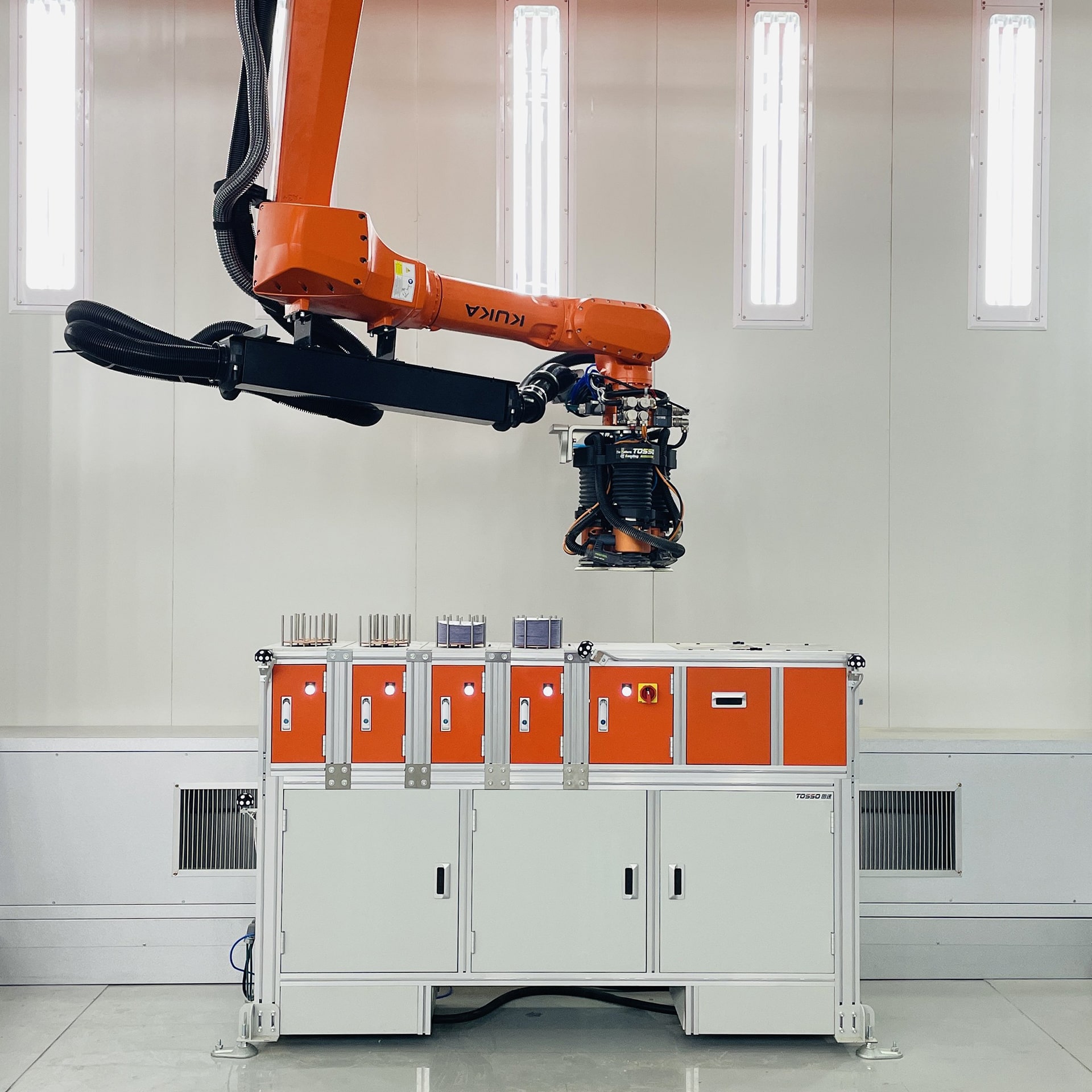Tosso, an industrial automation startup based in Shanghai, has closed a Series A funding round, raising an eight-figure RMB sum. Seas Capital led the round, with Mount Capital advising the deal. The company said it will use the funds to support R&D, grow its team, and scale operations. It previously received angel backing from SenseTime.
Founded in 2016, Tosso focuses on automating one of the more persistent manual processes in industrial manufacturing: grinding. The company designs and builds robotic systems for grinding and provides end-to-end automation solutions. Its core technologies include a flexible force-control grinder, a multi-head adaptive grinding tool, an automated abrasive replacement system, an artificial intelligence-powered grinding module, and an optical inspection platform. These components form the foundation of Tosso’s robots, which are deployed across industries such as rail transit, aerospace, wind power, and automotive.
“Grinding is a core step in manufacturing, and it’s needed across a wide range of downstream sectors,” founder Ge Xugang told 36Kr. The company estimates that market demand for grinding robots across rail, automotive, aviation, and wind energy sectors exceeds RMB 35 billion (USD 4.9 billion), with further growth expected.
While automation in areas like welding has advanced significantly, surface grinding remains mostly manual. Fewer than 10% of processes are automated. Human-led grinding is still common, despite being inefficient, inconsistent, and risky in terms of worker safety. Traditional grinding robots, meanwhile, often struggle with programming complexity, force precision, and real-time responsiveness.
Tosso addresses these issues with a full-stack solution that combines proprietary hardware and software. It currently offers two core products: a compound grinding robot mounted on an autonomous mobile robot (AMR) base for handling large, contoured surfaces like aircraft fuselages and wind turbine blades; and a stationary workstation for components such as railcar bodies and aerospace composites.
Technically, Tosso has built capabilities in AI-driven defect detection, real-time path planning, and adaptive force control. It also maintains a broad library of grinding protocols tailored to different sectors. These features enable its systems to handle various materials, including metal, composites, and painted surfaces.
Its flexible force-control grinder adjusts grinding pressure automatically using a single input value. The multi-head adaptive tool responds to curved surfaces ranging from 0 to 5 degrees and supports one, two, or three grinding heads. The abrasive replacement system automates sandpaper alignment and includes built-in inspection, positioning, and data tracking.
“Our optical module is a major differentiator,” Ge said. “It excels in detecting flaws on high-gloss or reflective surfaces.” The system can detect surface flaws like pinholes, paint clumps, shrinkage, and fibers, even on reflective materials with over 98% accuracy, less than 2% false positives, and precision up to 0.15 millimeters. Coupled with optical data, the robots generate optimized grinding paths for complex, curved surfaces.
To illustrate the robot’s impact, Ge cited the example of stripping paint from a small aircraft. Normally, this task requires 14 workers over two full days. With four Tosso grinding robots working in tandem, the job can be completed within the same timeframe.

“AI and embodied intelligence are increasingly integrated in this space,” Ge said. “Our goal is to keep advancing our systems so they can operate with greater environmental awareness and make autonomous decisions. That’s what enables stable, repeatable results.”
Tosso’s clients include CRRC, Aero Engine Corporation of China (AECC), Aviation Industry Corporation of China (AVIC), China Aerospace Science and Technology Corporation (CASC), and China National Building Material Group (CNBM). It is also working with automakers, shipbuilders, and metal fabricators. The company is aiming to secure RMB 100 million (USD 14 million) in orders for 2025.
Tosso employs over 30 people, more than 70% of whom are in R&D roles. The team originates from a former unit of German toolmaker Festool and brings long-standing expertise in grinding technologies. Its core technical staff includes alumni from Technische Universitat Berlin, Beijing Jiaotong University, Northwestern Polytechnical University, and Tsinghua University, with specialties spanning robotics, AI, and computer vision.
KrASIA Connection features translated and adapted content that was originally published by 36Kr. This article was written by Zhang Zhuoqian for 36Kr.
